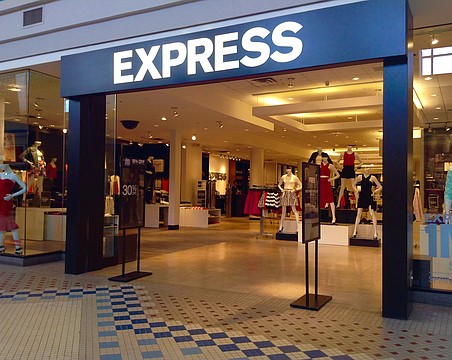David Sobelman literally wrote the book on buying and selling triple net lease properties.
First published in 2010 — a time when such deals were largely unknown — “The Little Book of Triple Net Lease Investing” with business partner Jonathan Hipp is today in its second edition, and has sold more than 8,000 copies.
Now, after more than a decade at Tampa's Calkain Cos. raising awareness and brokering such deals — in which expenses like utilities or taxes are “netted” out of gross rents and paid by tenants rather than landlords — he's again venturing out.
Generation Income Properties, which Sobelman founded in September 2015 to target “NNN” opportunities, could begin trading publicly later this year, if it reaches certain U.S. Securities and Exchange Commission milestones.
In January, GIP attracted its 100th investor, an important SEC hurdle for REITs that is a precursor to any initial public offering. This summer, it expects to close on its first acquisition, a 7-Eleven store on the ground floor of a new residential building being constructed in Washington, D.C.
And during the third quarter, the company hopes to raise up to $20 million and begin trading on the Over The Counter exchange.
Armed with that capital, GIP hopes to buy another half-dozen or so properties -- on the way to raising $1 billion.
“Many families come to me wanting to invest in property for their children or their grandchildren,” says Sobelman, GIP's CEO. “They want to buy assets that have true real estate value. That's what makes our REIT different — it's not just an income mechanism. The underlying real estate is very important to us.”
And like its name implies, Sobelman, 45, is building the company in Tampa for the long haul.
It's a long way, both geographically and philosophically, from the political career inside Washington, D.C.'s beltway that Sobelman once envisioned.
From cubicle to Calkain
A native of Sarasota, Sobelman graduated from the University of Florida with thoughts of going to medical school.
But after a friend persuaded him to move to the District of Columbia, he landed a job in 1998 in the White House as a foreign advance team staffer, and later one with U.S. Department of Health and Human Services. Though the work was rewarding, Sobelman found himself crushed by Washington's high cost of living.
A simmering interest in real estate prompted him to take a job in 2002 at commercial brokerage Grubb & Ellis, where he started as a low-level analyst.
Eight months in, he was approached by Jonathan Hipp, a Grubb & Ellis partner. Hipp told Sobelman he admired his work ethic, and asked if the junior analyst knew what he did at the firm.
Sobelman didn't have a clue, and his sense of obliviousness only grew when Hipp explained what triple net leases were. The concept was relatively new at the time: Only a handful of major brokerage firms had anyone dedicated to it.
Still, when Hipp invited Sobelman to work with him, he jumped at the chance to leave his cubicle behind.
It didn't take him long to realize the advantages NNN deals could have. They typically involve credit-worthy tenants like Walgreens, Starbucks or McDonald's on long-term leases that throw off relatively large amounts of cash, which make them attractive to investors.
From a brokerage
standpoint, capitalization rates for NNN deals are typically lower than other sectors, which means prices are higher. Higher prices translate into higher commissions.
Tenants like the structure, too, because they allow them to shift capital away from real estate ownership and into operations.
“On a risk-adjusted basis, triple net deals provided a return that other real estate asset classes can't,” Sobelman says. “It was easy to explain and understand. And for public companies, it makes a lot of sense. If it takes, say, $5 million to build a Walgreens store, if they don't have to own it that's $5 million they can deploy into the company, or provide to shareholders in the form of a dividend.”
Buoyed by growing interest in the deal structure and the waxing economy, and at a time when many retailers were interested more in occupying out parcels or high-trafficked corners than traditional shopping centers, Hipp and Sobelman left Grubb & Ellis in early 2005 to form Calkain Cos., based in Virginia.
“Some of our colleagues did think we were crazy, trying to build an entire company around a little-known, at the time, asset class,” Sobelman says. “But we had a lot of confidence in ourselves and in the property type.”
The following year, Sobelman returned to Florida and settled in Tampa — his wife's hometown — to expand Calkain's reach throughout the Southeast, where he was handling an increasing number of transactions.
For years afterward he was the only commercial real estate broker in Florida who focused on triple net investments. When the last decade's recession scared away investors, Sobelman and Hipp plowed their energies into their “Little Book” to help drum up business and opened an office in Fort Lauderdale, in 2011. Today, the firm maintains five offices and has 40 agents and staffers in all.
“I was very impressed with his approach to the business and his optimism,” says Franklin Carson, who retained Sobelman and Calkain to sell more than a dozen Applebee's restaurants. “He's done a phenomenal job for us, and gotten prices that have been much better than average. And I understand why: He's personable, people respect him, and he's one of the smartest guys I've met in the business. People gravitate to him.”
Despite the business's growth, Sobelman couldn't seem to get much love nationally, either. The International Council of Shopping Centers turned down his offer to make a presentation on triple net deals multiple times before agreeing to a daylong workshop in Dallas, in 2012.
When 300 people showed up to hear Sobelman speak, though, the trade group became convinced. Before long, Sobelman was hosting similar talks in Boston, Chicago, Orlando and San Diego.
By then, too, investors had begun flocking back to triple net transactions, lured by returns that had grown to 7% or more, in some cases. (By 2015, that rate had compressed to roughly a 4% cap -- meaning returns were lower and prices higher.)
Thinking generationally
That's when Sobelman began thinking about forming his own company. Triple net-devoted REITs had been done before — there are more than a dozen today, and most own more than $1 billion in assets — but none had the focus Sobelman was considering.
Rather than emphasizing dividends — under federal rules trusts must pay out 90% of their income to shareholders -- Sobelman wanted to concentrate on asset, and by extension, company appreciation.
If all goes according to plan, GIP will complete its IPO this year and raise another $300 million to $500 million through a secondary offering, according to company SEC filings. With that, Sobelman hopes to acquire as many as 75 assets, in 20 key cities nationwide.
“Our ultimate goal is to raise $1 billion in all, through a third offering,” Sobelman says, and ramp up GIP's portfolio to 300 assets. He'd also like to be on the New York Stock Exchange, where other triple net-focused REITs are traded.
In the meantime, he's spending time convincing investors like Alan Bomstein that triple net deals are safe and lucrative, and that GIP is a good platform to invest in them.
“I was skeptical at first,” says Bomstein, the CEO of Creative Contractors, of Clearwater. “But over time, I came to realize David's not a typical guy who's selling a real estate deal and maybe blowing a lot of smoke at you. He's very down to earth, his track record is very solid and his credentials are pretty impeccable.”
But even after the REIT takes off, Sobelman has no plans to leave triple net brokerage or Calkain, which has done more than $10 billion in transactions since its inception — behind.
In May, he'll be a featured presenter at the ICSC's premier annual conference, in Las Vegas, and he's preparing another book on the asset class, to be published late in 2017.
“I always see myself maintaining an interest in the brokerage,” Sobelman says. “I feel like I've had an influence, and helped professionalize the sector, and I hope to continue to do that.”






